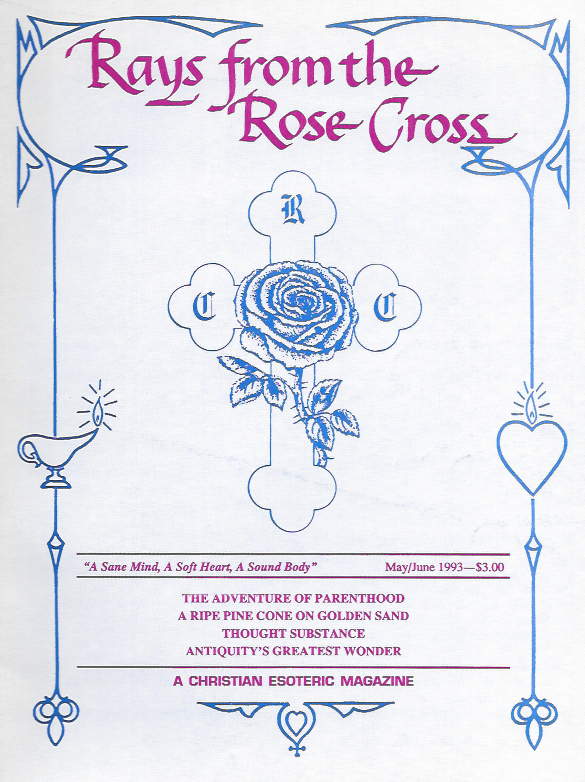

Q. How important is the panorama of the past life during the purgative existence?
A. Because in the Desire World this panorama is realized in definite feelings, it is most important.
Q. On what does this importance depend?
A. If the panorama lasted long and the man was undisturbed, the full, deep, clear impression etched into the desire body would make life in the Desire World more vivid and conscious and the purgation more thorough than if, because of distress at the loud outbursts of grief on the part of relatives at the death bed and during the three-day period, the man had only a vague impression of his past life.
Q. Why is this important?
A. The Spirit which has etched a deep, clear record into its desire body will realize the mistakes of the past life much more clearly and definitely than if the pictures were blurred on account of the individual's attention being diverted by the suffering and grief around him.
Q. How does this benefit him?
A. His feeling concerning the things which cause his present suffering in the Desire World will be much more definite if it is drawn from a distinct panoramic impression than if the duration of the process were short, and this sharp, clear-cut feeling is of immense value in future lives.
Q. How is this accomplished?
A. It stamps upon the seed atom of the desire body an ineffaceable impression of itself. The experience will be forgotten in succeeding lives, but the feeling remains.
Q. How does this manifest?
A. When opportunities occur to repeat the error in later lives, this feeling will speak to us clearly, and unmistakably.
Q. By what other name is this called?
A. It is the "still, small voice" of conscience which warns us, though we do not know why; but the clearer and more definite the panorama of past lives have been, the oftener, stronger, and clearer shall we hear this voice.
Q. What might this teach the living?
A. It should teach us how important it is that we leave the passing Spirit in absolute quietness after death. By so doing we help it to reap the greatest possible benefit from the life just ended and to avoid perpetuating the same mistakes in future lives, while our selfish, hysterical lamentations may deprive it of much of the value of the life it has just concluded.
Q. What is the mission of Purgatory?
A. The mission of Purgatory is to eradicate injurious habits. The individual suffers exactly as he has made others suffer through his dishonesty, cruelty, intolerance, or what not. Because of this suffering he learns to act kindly, honestly, and with forbearance toward others in future.
Q. Then Purgatory is an indispensable factor in his development?
A. Yes, as a consequence of the existence of this beneficent state man
learns virtue and Aght action. When he is reborn, he is free from evil habits;
at least, every evil act committed is one of his own free will. The tendencies
to repeat the evil of past lives remain, for we must learn to do right
consciously and of our own will.
— Ref: Rosicrucian Cosmo-Conception
— Rays from the Rose Cross Magazine, May, 1980, p. 212